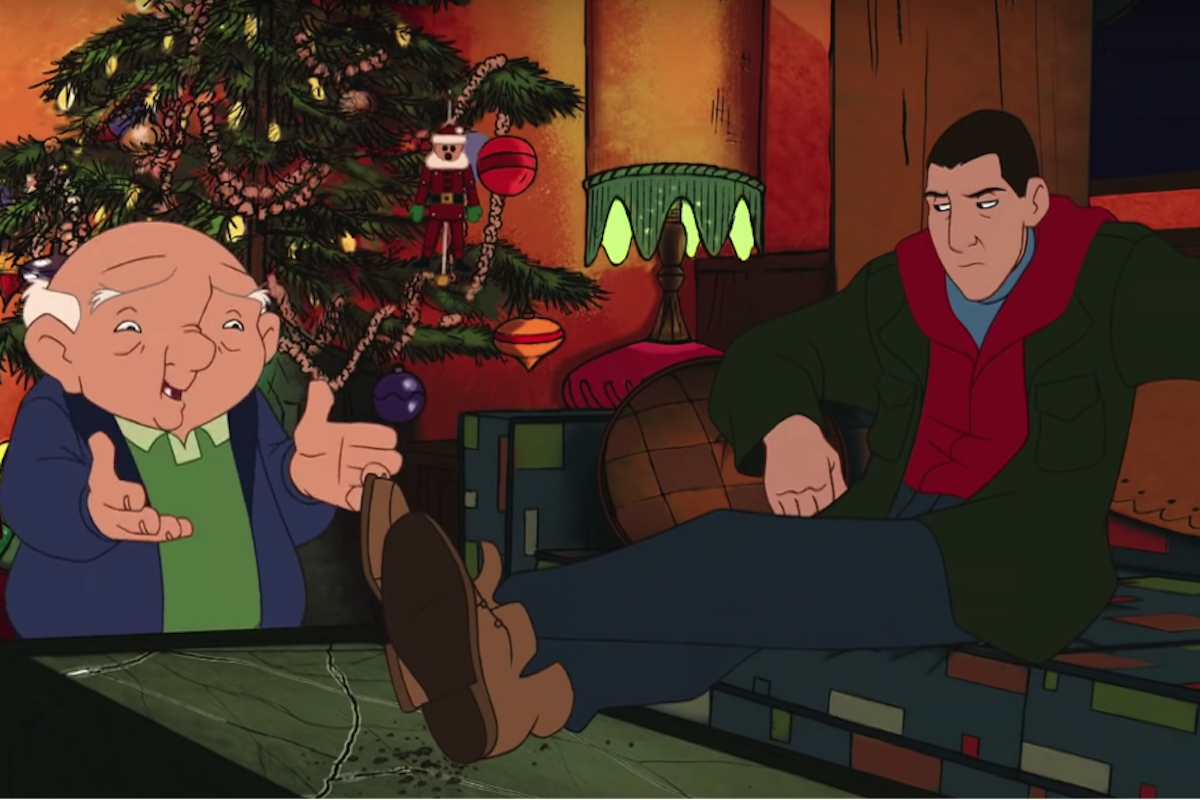Before I begin, I should note that I don’t hate Adam Sandler or his many Hanukkah songs. I liked the first so much in fact that I included it on the CD I gave out at my bat mitzvah party. But my love of that song does not blind me to the inaccuracies that are present in the movie spin-off, Eight Crazy Nights.
Since it came out in 2002, Eight Crazy Nights has been a Hanukkah staple in my family, so much so that my sisters and I watch it several times a year during and outside of the Hanukkah season. It tells the story of a Hanukkah curmudgeon, Davey, who must learn to express his grief so that he may love the holiday. In short, it’s a morality tale wrapped in toilet humor (it’s Adam Sandler, after all). It is nice to have Jewish holiday movie representation, but its depiction leaves a lot to be desired, probably to make it more commercially palatable. Here are eight things the movie got wrong:
1. It Doesn’t Tell the Hanukkah Story At All
One of the major issues I have with Eight Crazy Nights is that you could very easily watch it and have no idea what Hanukkah is. The holiday is not explained at all, other than the fact that it happens over eight nights and that gifts are involved. This leads me to my next point.
2. Ties Consumerism to Religion
Eight Crazy Nights mostly focuses on the gift-giving portion of the holiday and not the actual Hanukkah rituals or the meaning of it. Spoiler alert if you haven’t already seen the movie (what are you waiting for?), but Davey comes to the realization that he needs to cry and love Hanukkah again not because of the miracle of the oil or his ancestors’ survival, but through the help of the mascots of several chain stores.
3. It Makes the Holiday Feel Very… Not Jewish
Throughout the movie, a 70-year-old goyish man, Whitey, tries to unsuccessfully mentor Davey. At the end of the movie, he comes to the realization that he needs to let Hanukkah back in his heart because of Whitey. But Whitey is filled with a love for the holiday season that can only be possessed by a man whose religion shapes holidays around joy rather than suffering. This feels deeply un-Jewish.
4. There are Several Allusions to the Number 8 but Nothing about the Miracle
The number eight plays into the story several times, but you wouldn’t have any clue why unless you already knew about the holiday. Davey is forced to make amends when the eight tires of the bus he is trying to leave town on break because of a single tack. If a person didn’t know about the oil for one night miraculously lasting for eight, this reference would go straight over their head.
5. The miracle of this movie is The JCC Miracle Game
The only acknowledged miracle that happens in Eight Crazy Nights is the JCC miracle game, where the JCC’s always-losing youth basketball team wins their game on the first night of Hanukkah. Right after this “miracle,” Davey finds out his parents are dead. Not quite the miracle we’d hope for.
6. The JCC Basketball Coach is a Jewish Stereotype
To add insult to Davey’s injury, his coach is an awful Jewish stereotype, from his looks to his constant need to hora. The use of stereotypes is an issue throughout the movie (and not just tied to the Jews) but still — it’s not great.
7. People Keep Doing the Hora like it is a Normal Hanukkah Activity
The Jews of the fictional town in Eight Crazy Nights are frequently doing the hora when anything emotional happens. Maybe it’s just my family, but the hora is not a typical Hanukkah activity, or a typical any day activity. We mostly just do it at weddings and bar mitzvahs. I’ll see if I can change that this year, though.
8. Codes Jewish Without Actually Being about Judaism
Some may call Eight Crazy Nights a Jewish movie, but it is really just Jew-ish. It has Jewish elements without touching on any of the actually tenants of Judaism or the meaning behind Hanukkah. To be fair, if it actually did focus on Judaism, it would probably be far less popular.



